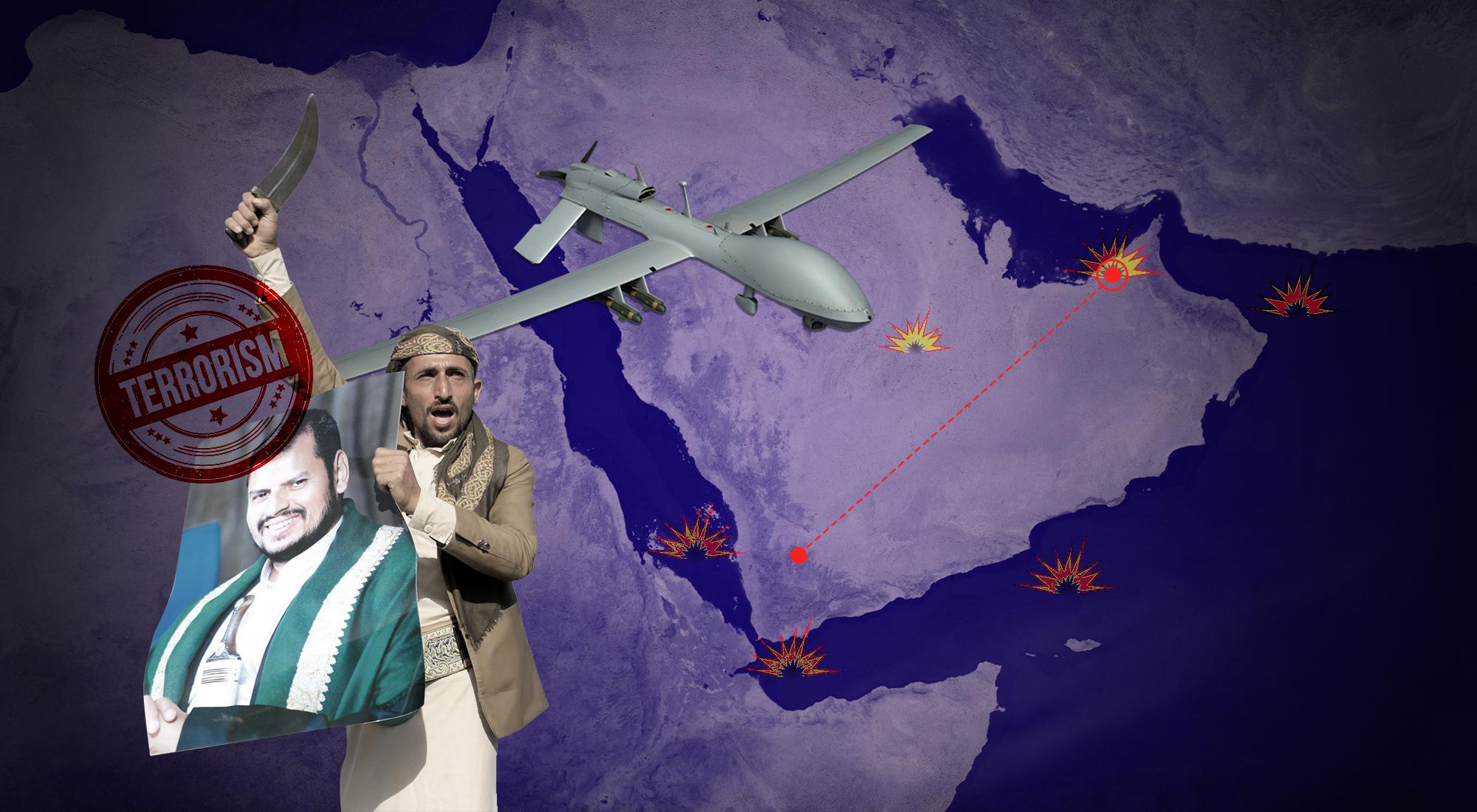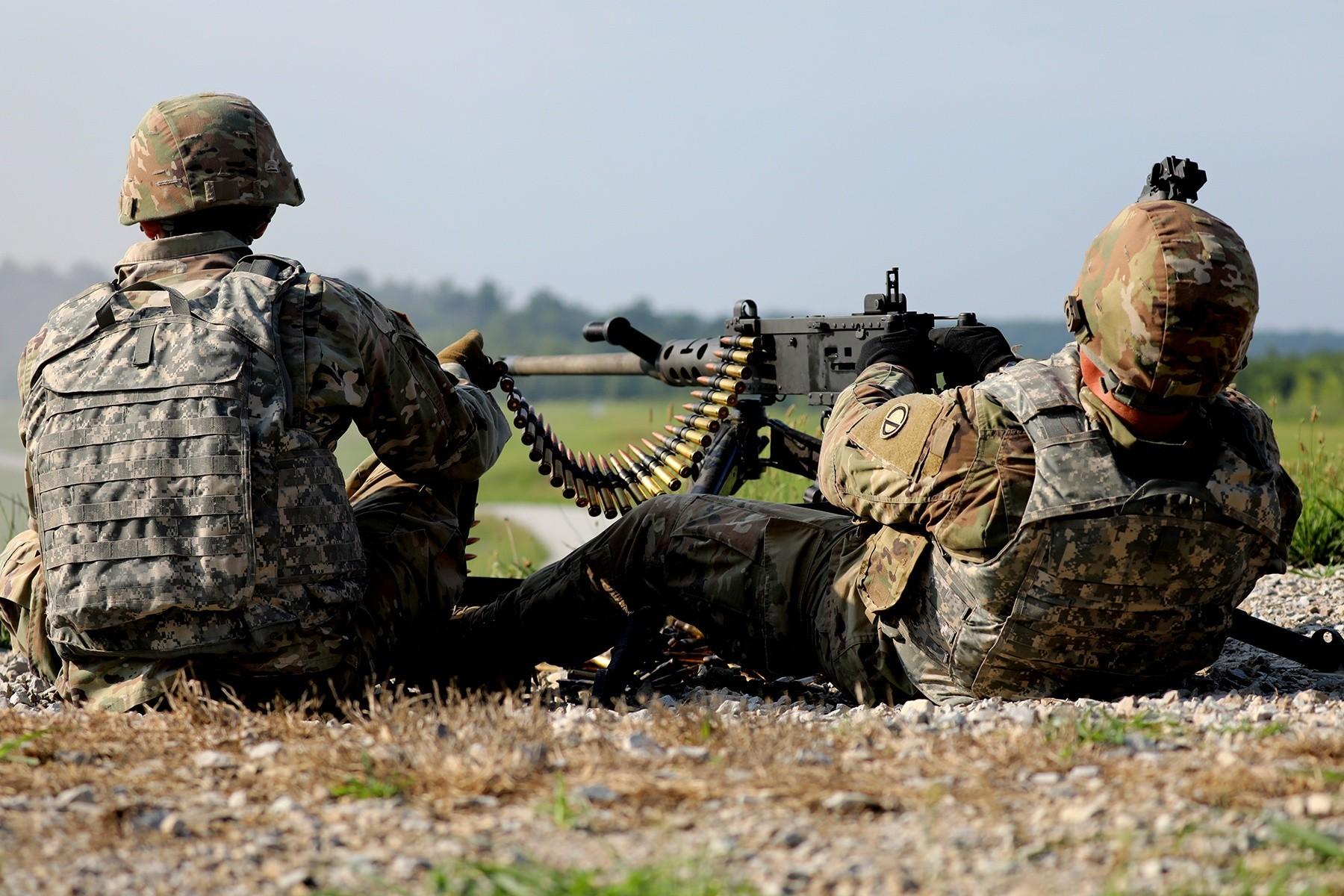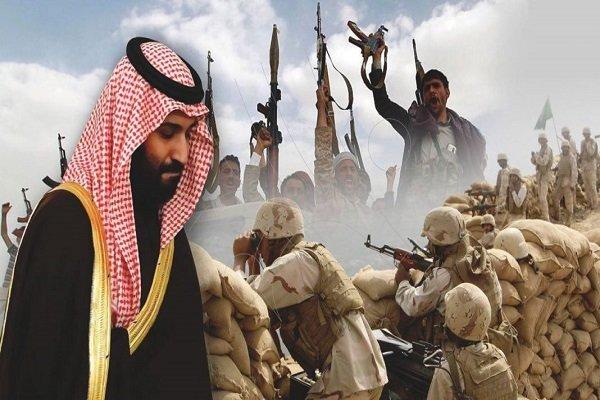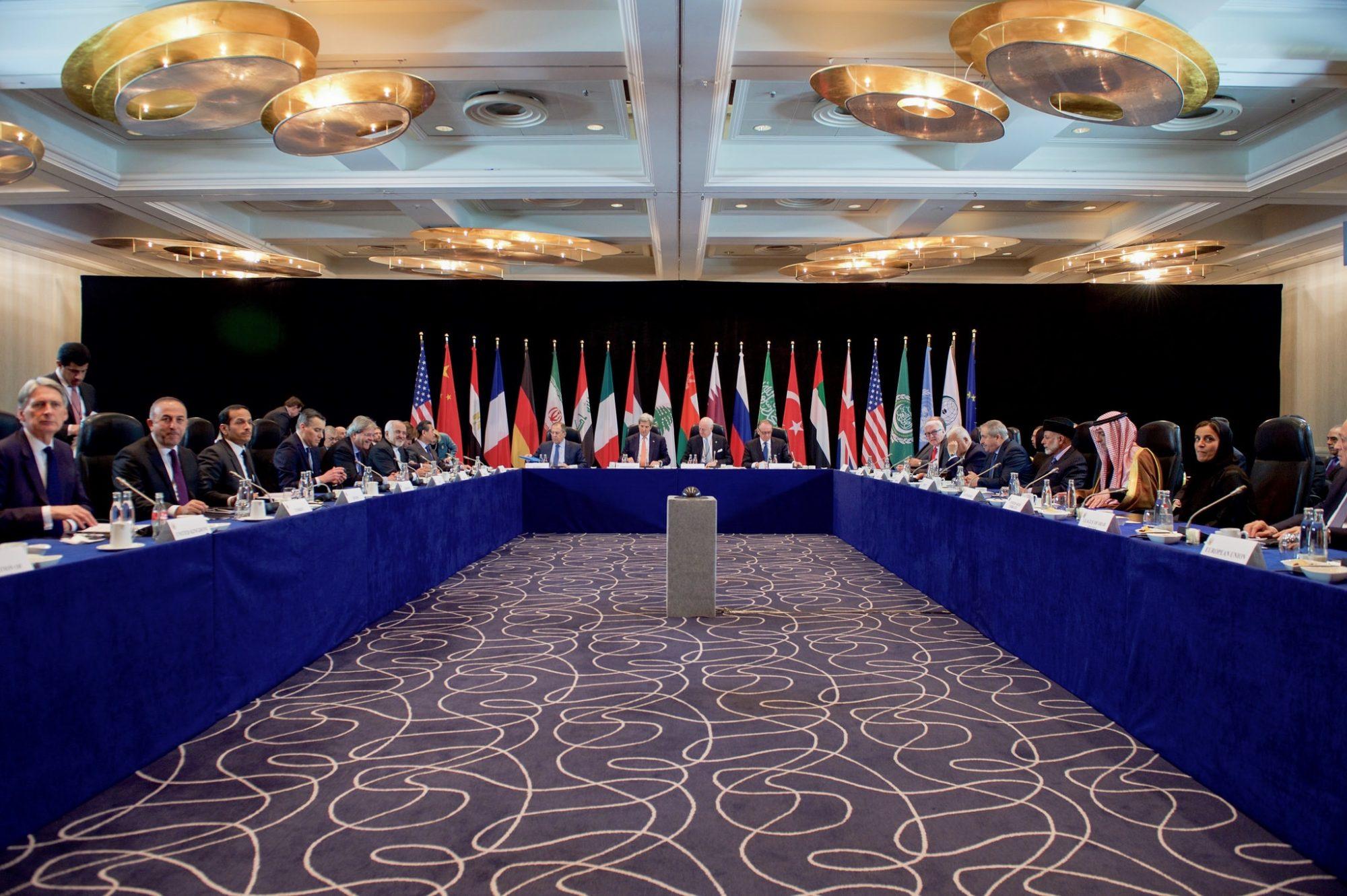In a significant escalation of military engagement in the Middle East, the United States and the United Kingdom have launched coordinated strikes against Houthi targets in Yemen, following a series of recent attacks that threatened key maritime security in the Red Sea. This operation, aimed at countering the Houthis’ increasing aggression and ensuring the safety of international shipping routes, highlights the intensifying geopolitical tensions in the region. As the conflict in Yemen drags on, the involvement of Western powers raises critical questions about the implications for regional stability and the ongoing humanitarian crisis. This article will explore the motivations behind the strikes, the impact on the Houthi movement, and the broader consequences for US-British relations with Middle Eastern nations.
US and Britain Respond to Houthi Threats in the Red Sea
The recent escalation in tensions involving Houthi forces has led to significant military responses from both the United States and Britain, aimed at protecting vital shipping lanes in the Red Sea. Following a series of attacks attributed to the Houthis, which targeted international vessels, the coalition’s decision to conduct precision strikes sends a clear message regarding the severity of these provocations. This action is designed not only to deter further assaults but also to assure maritime security in a region critical for global trade.
In a coordinated effort, the US and UK have outlined their strategic objectives, which include:
Protecting vital maritime routes: The Red Sea is a key corridor for oil and goods, making its security paramount.
Reducing Houthi capabilities: Targeting missile launch sites and supply lines will aim to diminish the group’s operational reach.
Supporting regional partners: Strengthening alliances with Gulf states to enhance collective defense mechanisms.
Officials from both governments assert that these military operations are not merely reactive but part of a broader strategy to stabilize the region. Additionally, they emphasize the importance of diplomatic solutions, urging Houthi leaders to seek dialogue rather than conflict. The international community remains watchful, assessing how these strikes will influence the ongoing humanitarian crisis in Yemen and the potential for further regional instability. A strategic table outlining the recent events and responses is as follows:
Date
Event
Response
October 2023
Houthi attacks on vessels
US and UK military strikes
September 2023
Increased Houthi drone activity
Joint surveillance operations initiated
August 2023
Escalation of maritime threats
Coalition meetings to discuss strategy

Analysis of the Strategic Implications of Military Strikes
The recent military strikes against the Houthis in Yemen signify a pivotal moment in geopolitical dynamics, especially concerning the security of vital maritime routes in the Red Sea. By engaging in such military action, the US and Britain signal a commitment to countering threats that challenge international commerce and regional stability. The strikes not only aim to deter future attacks on vessels but also serve as a clear statement of resolve in the face of escalating aggression from non-state actors. This military engagement reflects a broader strategy that integrates diplomatic, economic, and military elements to address complex security challenges and uphold maritime security interests.
However, the implications extend beyond immediate military effectiveness. By analyzing the potential responses from regional and global players, several outcomes can be anticipated, including:
Escalation of Hostilities: Possible retaliatory actions from the Houthis could further destabilize Yemen and escalate violence.
Shifts in Alliances: Regional actors might reconsider their position in relation to the US and UK, impacting the balance of power.
Humanitarian Concerns: Increased military action could exacerbate the already dire humanitarian situation in Yemen.
Global Trade Impact: Any rise in regional tensions could disrupt shipping routes, affecting global supply chains.
Potential Outcomes
Implications
Escalation of Hostilities
Increased conflict and civilian casualties
Shifts in Alliances
Realignment of diplomatic relations in the region
Humanitarian Concerns
Further deterioration of living conditions for civilians
Global Trade Impact
Increased shipping costs and delays in trade
Humanitarian Impact: Navigating the Consequences for Yemen
The recent military action taken by the United States and Britain against the Houthis in Yemen marks a significant escalation in the already dire humanitarian situation in the region. With a history of conflict exacerbating the humanitarian crisis, the impact of these strikes is likely to ripple through an already suffering civilian population. The ongoing conflict has resulted in the following issues:
Displacement of Civilians: Millions have been forced to flee their homes, further straining limited resources.
Food Insecurity: The blockade and ongoing fighting have led to one of the worst famines in the world, with over 16 million people at risk of starvation.
Healthcare Collapse: With healthcare facilities bombed or inoperative, preventable diseases are on the rise, claiming more lives than actual combat.
As international intervention continues, it is crucial to consider its implications for aid delivery and the overall stability of the region. The immediate consequences could further complicate peace efforts and relief initiatives. An analysis of the humanitarian status reveals:
Humanitarian Metric
Current Status
People in Need of Aid
24 million
Malnourished Children
2.2 million
Healthcare Facilities Operational
50%
This data underscores the urgent need for diplomatic solutions and increased humanitarian assistance, as military actions often lead to unintended consequences for those who are already vulnerable.

International Reactions and the Future of the Saudi-led Coalition
The recent military operations led by the United States and Britain against Houthi positions in Yemen have sparked a wave of international reactions, reflecting a broad spectrum of geopolitical interests and alliances. Nations such as Saudi Arabia and the United Arab Emirates have welcomed these strikes, viewing them as a necessary step to counteract the growing influence of Iranian-backed groups in the region. On the other hand, countries like Russia and China have condemned the actions, labeling them as escalatory measures that undermine the prospects for a peaceful resolution to the ongoing conflict. The responses indicate a deepening divide among global powers, each with their own strategic imperatives tied to the conflict in Yemen.
Looking ahead, the future of the Saudi-led coalition seems uncertain as these developments unfold. The coalition faces multiple challenges, including growing regional dissent and the potential for a prolonged conflict that could further destabilize the region. Key factors influencing the coalition’s effectiveness include:
Military Coordination: Maintaining unity among coalition partners is critical as differing national interests can lead to fragmentation.
Humanitarian Pressures: The rising humanitarian crisis in Yemen may compel the coalition to seek diplomatic solutions sooner rather than later.
International Diplomacy: The effectiveness of negotiations through entities like the UN may shift the focus away from military solutions.
Country
Reaction
Saudi Arabia
Supportive of strikes
Iran
Condemning foreign intervention
Russia
Against escalation
United States
Defending maritime security

Recommendations for Diplomatic Solutions Beyond Military Engagement
While military actions may seem like a decisive response to recent aggressions in Yemen, a more sustainable approach involves prioritizing diplomatic solutions to address the underlying issues. Engaging with regional partners and stakeholders is essential to foster dialogue that aims at long-term stability. Key strategies include:
Facilitating inclusive negotiations with all parties involved, ensuring that local voices are heard and represented.
Establishing humanitarian corridors to alleviate the suffering of civilians caught in conflict.
Encouraging confidence-building measures that can reduce hostilities and pave the way for a ceasefire agreement.
Leveraging international organizations to mediate discussions, providing a neutral platform for conflict resolution.
Furthermore, economic incentives can also play a crucial role in shifting the dynamics away from violence. Providing development aid and rebuilding infrastructure in war-torn areas can help garner support from local populations and diminish the appeal of extremist factions. To this end, consider these initiatives:
Initiative
Description
Job Creation Programs
Investing in vocational training to empower the youth and reduce unemployment.
Infrastructure Development
Rebuilding essential services like schools and hospitals to improve quality of life.
Trade Agreements
Establishing fair trade practices to boost local economies and create interdependence.

Assessing the Role of Global Powers in Yemens Ongoing Conflict
The ongoing conflict in Yemen continues to unveil a complex interplay of local dynamics and international interests. As factions like the Houthis wield significant influence over strategic points, such as the Red Sea, global powers are increasingly drawn into the fray. Recent military actions by the US and Britain reflect a growing concern over maritime security, particularly in response to the escalating attacks attributed to Houthi forces. These strikes not only aim to deter further aggression but also signal a broader commitment by Western nations to uphold regional stability amidst a humanitarian crisis that has claimed countless lives and displaced millions.
In dissecting the role of these global powers, it’s essential to recognize the diverse motivations that shape their involvement. Factors influencing their actions include:
National Security: Protection of strategic waterways from hostile actors.
Geopolitical Influence: Reinforcing alliances with Gulf states while countering Iran’s regional aspirations.
Humanitarian Concerns: Addressing the worsening conditions faced by Yemeni civilians.
Furthermore, international responses are often characterized by a mix of diplomacy and military might, each playing a pivotal role in potentially reshaping the conflict’s trajectory. Demand for a unified strategy remains critical as the humanitarian crisis deepens, highlighting the need for collaborative efforts not only in military action but also in providing humanitarian aid and rebuilding trust among warring factions.
Closing Remarks
the recent US and British military strikes against Houthi targets in Yemen mark a significant escalation in the international response to ongoing maritime threats in the Red Sea. As tensions continue to rise, both nations assert that these actions are aimed at safeguarding vital shipping lanes and protecting global trade from potential disruptions. The strikes underscore the complexities of the Yemeni conflict and highlight the broader geopolitical implications, as regional stability remains precarious. The international community will undoubtedly be watching closely, as these developments may redefine military engagement and diplomacy in the region. Moving forward, it will be crucial to monitor the responses from the Houthis and neighboring states, as well as the potential for further military action or diplomatic overtures in this multifaceted crisis.
The post US, Britain launch strikes against Houthis in Yemen over Red Sea attacks – CNA first appeared on Asia News.
Author : Jean-Pierre CHALLOT
Publish date : 2025-02-12 23:32:35
Copyright for syndicated content belongs to the linked Source.
